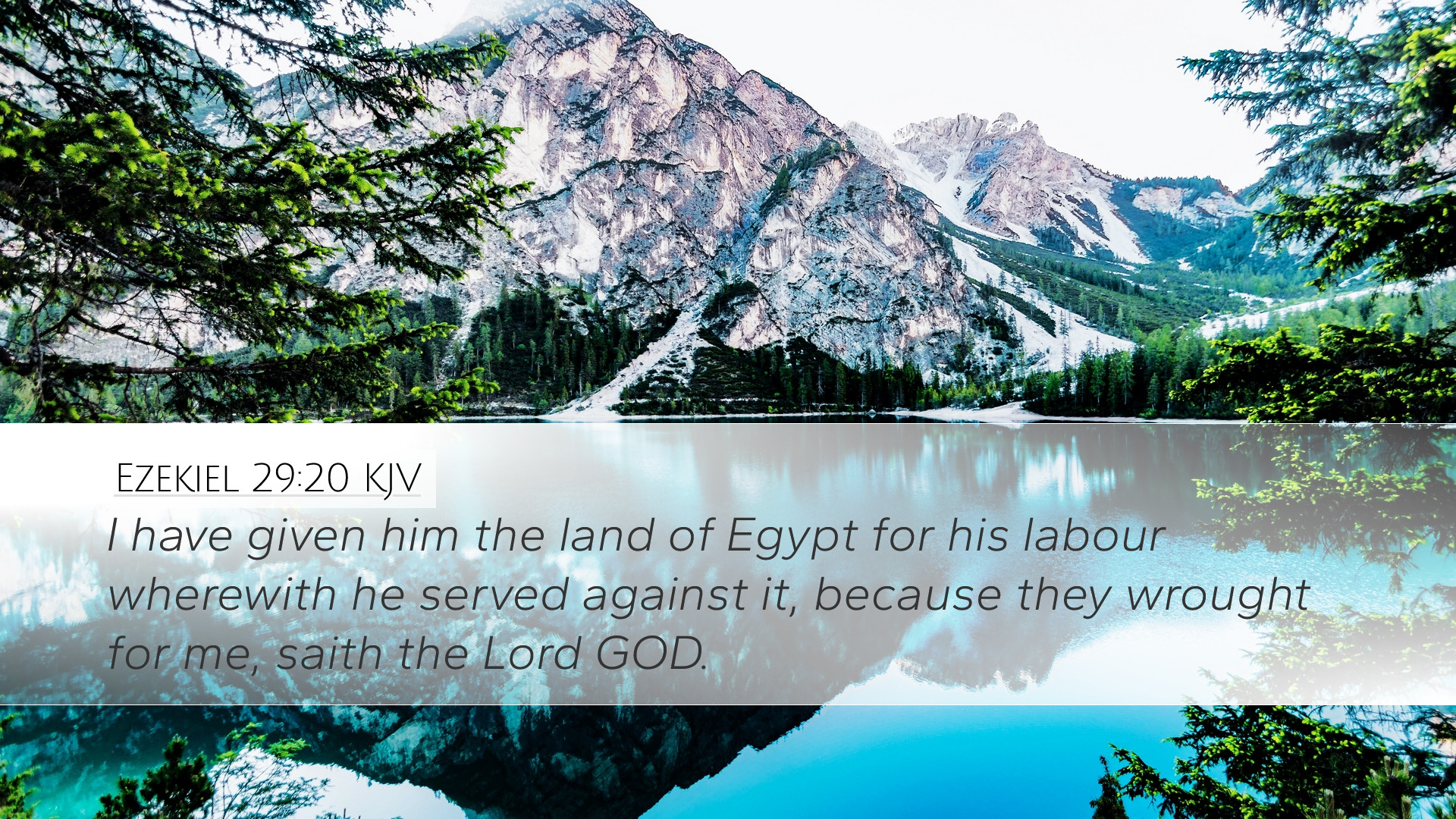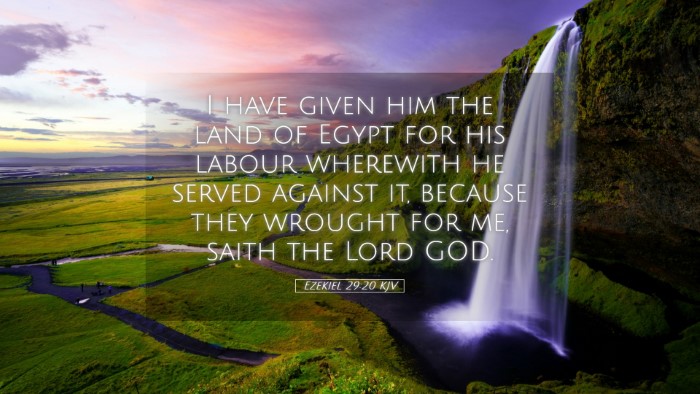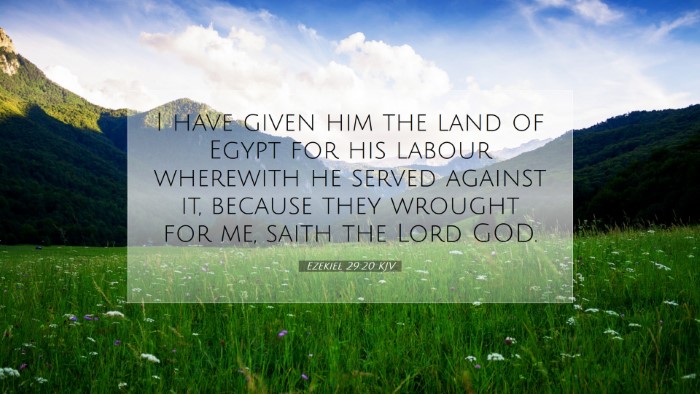Ezekiel 29:20 Commentary
Verse Text: "I have given him the land of Egypt for his labor wherewith he served against it, because they wrought for me, saith the Lord GOD."
This verse from Ezekiel 29:20 brings to light the sovereign workings of God in the affairs of nations. It serves as a reminder of God’s control over the empires of the world, particularly in the context of Egypt and its relationship with Israel.
Contextual Background
The Book of Ezekiel is often thematically set against the backdrop of the Babylonian exile. Ezekiel, a prophet during this tumultuous period, conveys messages of judgment and hope through vivid imagery and symbolic acts. Ezekiel 29 explicitly addresses Pharaoh and the nation of Egypt, depicting their impending judgment.
Insights from Matthew Henry
Matthew Henry emphasizes that God is the ultimate arbiter of the fate of nations, as seen in His proclamation regarding Egypt. He articulates that this verse reveals God’s justice in rewarding the service rendered by Nebuchadnezzar, who was portrayed as an instrument of God's judgment.
- Divine Sovereignty: Henry points out that God controls the destinies of kingdoms and their rulers, using them according to His divine purposes.
- Reward for Service: The labor of Nebuchadnezzar, in the conquest of Egypt, is acknowledged, illustrating that God doesn’t overlook the endeavours of even His instruments of judgment.
Insights from Albert Barnes
Albert Barnes offers a thorough examination of the themes of recompense and divine justice within this brief yet powerful verse. He notes that God's dealings with nations are often reflective of their actions towards His people.
- Egypt as a Laborer: Barnes interprets Egypt’s role as a servant to God’s purposes, highlighting the notion that nations may be employed in ways they do not fully understand.
- Historical Context: He presents a view of the historical context, identifying how the Babylonian conquest served as a judgment not only for Egypt but also a lesson for Israel and the surrounding nations.
Insights from Adam Clarke
Adam Clarke’s commentary delves into the implications of the verse regarding God’s commendation of Nebuchadnezzar’s labor. Clarke implies that it signifies God’s acknowledgment of Nebuchadnezzar’s efforts against the Egyptians, which, though brutal, had a divinely ordained purpose.
- Importance of Labor: Clarke notes the emphasis on labor as a theme in the Bible, indicating that God rewards those who work toward fulfilling His will, no matter their status or the moral implications of their methods.
- The Role of Nations: He also examines how this verse serves as a reminder of how nations can be part of God’s greater plan, often against their own understanding and intentions.
Theological Implications
The verse presents multiple theological implications for those engaged in pastoral work, academic study, and theological reflection:
- God’s Sovereignty: The sovereignty of God is paramount, demonstrating that He uses all nations, great and small, to fulfill His divine plan.
- Judgment and Mercy: It underscores the notions of judgment and mercy, showing that God can bring about judgment through seemingly secular means while still extending mercy to His faithful.
- Historical Lessons: There is a reminder for contemporary readers about the lessons of history; nations, like individuals, are accountable to the God who reigns over all.
Practical Applications for Today
As modern readers of Ezekiel 29:20, implications for contemporary faith practices and understanding of current events may include:
- Trust in God's Plan: Believers are encouraged to cultivate a trust in God’s overarching control over the affairs of humanity, particularly in tumultuous times.
- Reflection on Service: The passage invites self-reflection on how individuals contribute to God's work, whether through professional roles, church activities, or personal lives.
- Awareness of God’s Justice: It instills an awareness of God’s justice at work in the world, fostering a sense of accountability among nations and leaders in their governance and actions.
Conclusion
Ezekiel 29:20 presents profound truths about God’s sovereignty and His unyielding care for His creation. By examining this verse through the lenses provided by Matthew Henry, Albert Barnes, and Adam Clarke, students, pastors, and theologians uncover layers of meaning that illuminate God’s purposes in history and His expectations of His people today.


